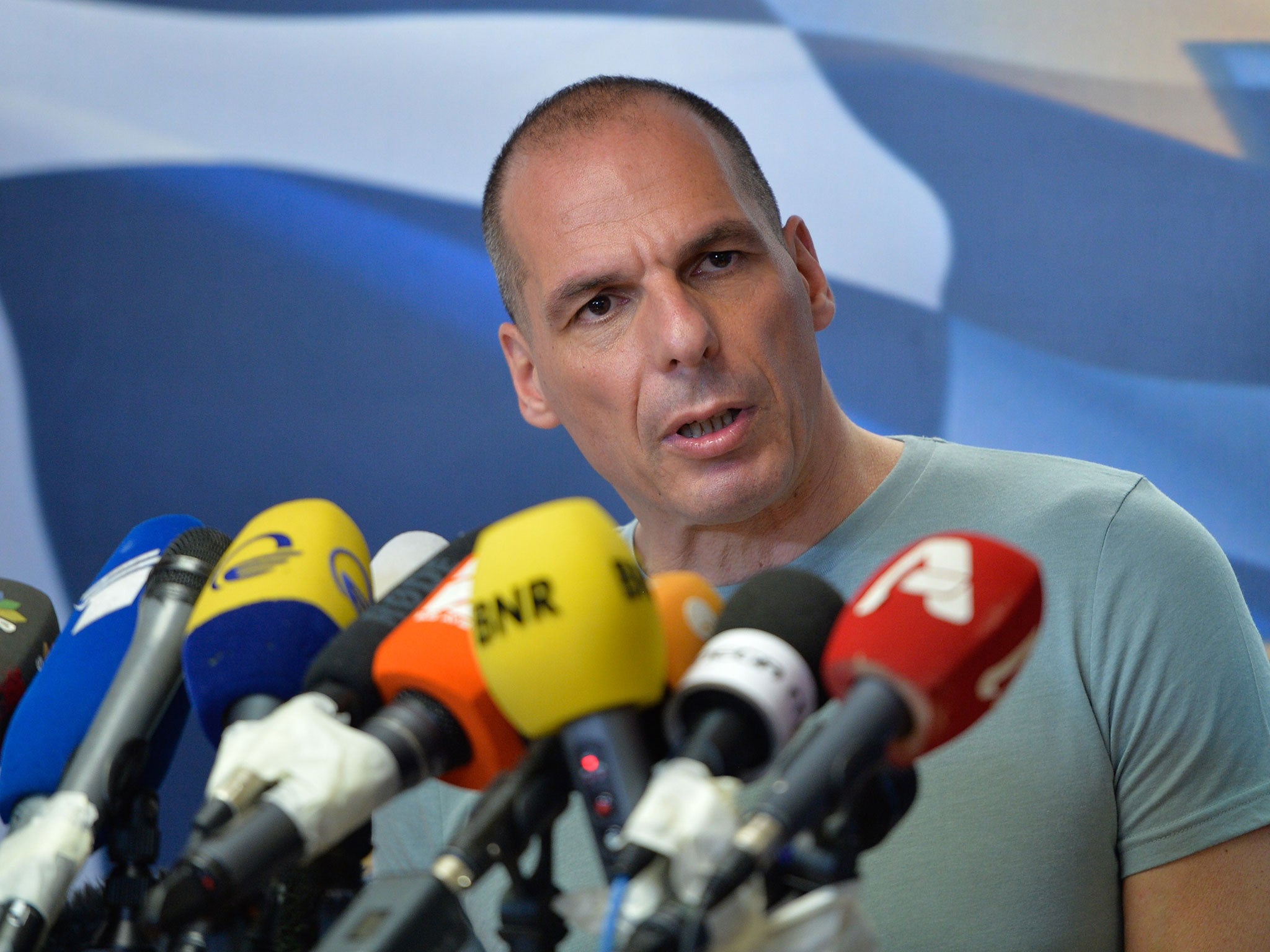Former Greece finance minister Yanis Varoufakis is setting up a Europe-wide movement to democratise the EU

Greece’s former finance minister is in the process of setting up a pan-European movement to reform the EU’s institutions, he has revealed.
Yanis Varoufakis said his experience in Eurogroup meetings had left him with the conclusion that the EU was not democratic.
“What is going on in Greece is simply a reflection - an echo - of a far deeper crisis throughout the eurozone, which cannot be solved at any national or member-state level,” told the Open Democracy website.
“The obvious conclusion one must draw from this is that either you argue for a dissolution of the monetary union, and then you can talk about national politics again quite sensibly. Or you should be talking about a pan-European movement for change throughout the eurozone.”
Mr Varoufakis, who is an economist, said the new movement would have “one very simple, but radical, idea: to democratise Europe”.
“A pan-European movement is the only solution. It sounds utopian, but this idea cemented in my mind in August when I started travelling across Europe, and realised that there was a great deal of hunger and thirst everywhere I went for such an idea.”
At a separate event in central London in Friday night, the professor said small changes such as live-streaming all European Council meetings and releasing minutes of European Central Bank meetings would make a significant difference.

He said the movement would not be a formal political party but rather a coalition of citizens open to all.
The European Union's constitution is democratic in part but not in others.
The European Parliament is directly elected, but it cannot pass legislation without the consent of the Council of Ministers, which is usually thought of as an upper house or senate.
Council members are indirectly elected to their post, being ministers in their national government. Many of their key meetings are held in private, however.
The European Commission, which acts as as the EU's executive, is not directly elected, though it is effectively accountable to the European Parliament.
Critics of the EU have long maintained the current setup is not democratic. At Conservative party conference earlier this month minister Karen Bradley outlined a process by which European member states sometimes use EU institutions to bypass national democracy.
Since the last Greek election Mr Varoufakis, who is no longer a Syriza MP, has been on a speaking tour, addressing audiences and television studios around the world.
The economist stood down from his post after the government , led by Alexis Tsipras, effectively accepted demands by Greece’s creditors for further austerity.
Last month Mr Varoufakis appeared on the BBC's Question Time programme to warn that austerity was being used as a cover story to conduct class war against the poor.
He has also given advice to Labour's new leader Jeremy Corbyn, telling them that their opponents would "use fear as their main instrument".
Join our commenting forum
Join thought-provoking conversations, follow other Independent readers and see their replies
Comments
Bookmark popover
Removed from bookmarks